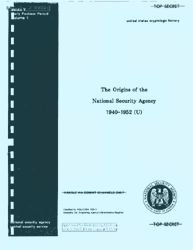Although the prospect of a better material life brought most English settlers to America, for some, economic opportunity was not the only reason they abandoned what their contemporary William Shakespeare called “dear mother England.” A profound unease with England’s spiritual state—and therefore with their own while they remained there—explains why many colonists embarked on their “errand into the wilderness.”
Despite the attempt of Henry Vlll’s older daughter, Queen Mary, to reinstate Catholicism during her brief reign (1553-1558), the Anglican Church became once and for all the official Church of England during the long reign of Elizabeth I (1558-1603). Like her father, Elizabeth took more interest in politics than in religion. So long as England had its own church, with her at its head, and with English rather than Latin as its official language, she was content. Aside from these changes, the Anglican Church under Elizabeth closely resembled the Catholic Church it had replaced.
This middle way satisfied most, but not all, of Elizabeth’s subjects. Steadfast Catholics could not accept it. Some left England; the rest practiced their faith in private. At the other extreme, more radical Protestants, including a large percentage of England’s university-trained clergy, insisted that Elizabeth had not gone far enough. The Anglican Church was still too much like the Church of Rome, they claimed. They objected to the richly decorated vestments worn by the clergy and to the use of candles, incense, and music in church services. They insisted that emphasis should be put on reading the Bible and analyzing the meaning of the scriptures in order to encourage ordinary worshipers to understand their faith. Since they wanted to

Great English Migration, 1630-1650 Of the 50,000 English emigrants to the Americas, most were young, single men who flocked to the tobacco and sugar regions of Virginia and the Caribbean. About 15,000, mostly puritans, headed for the rocky shores of New England. A majority of this group were mature men and their families.
“purify” Anglicanism, these critics were called puritans. At first the name was a pejorative assigned to them by their opponents, but later it became a badge of honor.
Puritans objected to the way Elizabeth’s bishops interpreted the Protestant doctrine of predestination. Their reading of the Book of Genesis convinced them that all human beings were properly damned by Adam’s original sin and that what they did on Earth had no effect on their fate after death. To believe otherwise was to limit God’s power, which was precisely what the Catholic Church did in stressing its ability to forgive sins by granting indulgences. The Anglicans implied that while God had already decided whether or not a person was saved, an individual’s efforts to lead a good life could somehow cause God to change His mind. The Anglican clergy did not come right out and say that good works could win a person admission to Heaven—that heresy was called Arminianism. But they encouraged people to hope that good works were something more than ends in themselves. Puritans differed as to whether or not the ideal church should have any structure beyond the local congregation. Some— later called Congregationalists—favored a completely decentralized arrangement with the members of each church and their chosen minister beholden only to one another. Others, called Presbyterians, favored some organization above the local level, but one controlled by elected laymen, not by the clergy.
Puritans were also of two minds as to whether reform could be accomplished within the Anglican Church. During Elizabeth’s reign most hoped that it could. Whatever they did in their local churches, the puritans remained professed Anglicans. After James I succeeded Elizabeth I in 1603, however, their fears that the royal court might be backsliding into its old “popish” ways mounted. James was married to a Catholic, and the fact that he favored toleration for Catholics gave further substance to the rumor that he was himself a secret member of that church. This rumor proved to be false, but in his twenty-two-year reign (1603-1625) James did little to advance the Protestant cause. His one contribution, which had a significance far beyond what he or anyone else anticipated, was to authorize a new translation of the Bible. The King James Version (1611) was both a monumental scholarly achievement and a literary masterpiece.




 World History
World History









